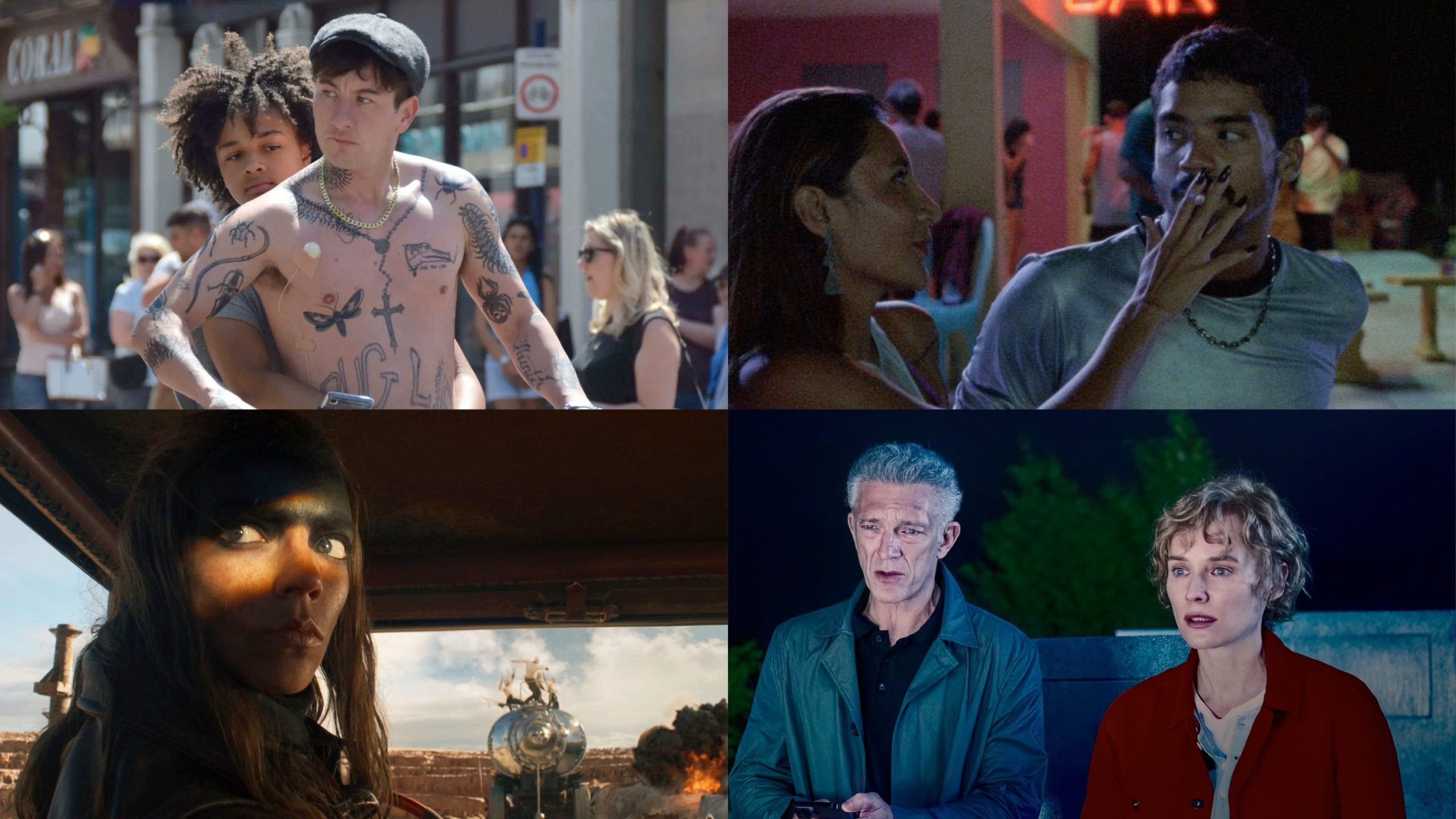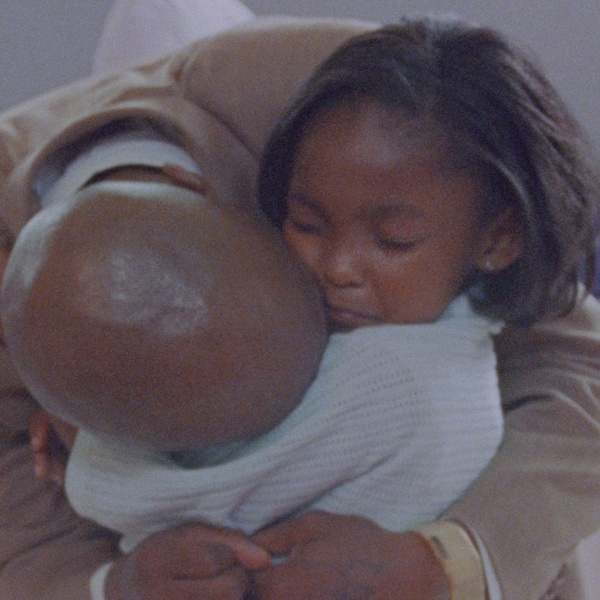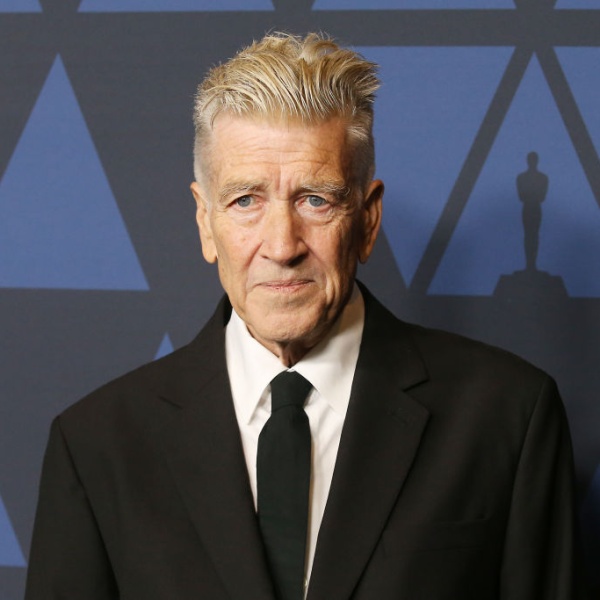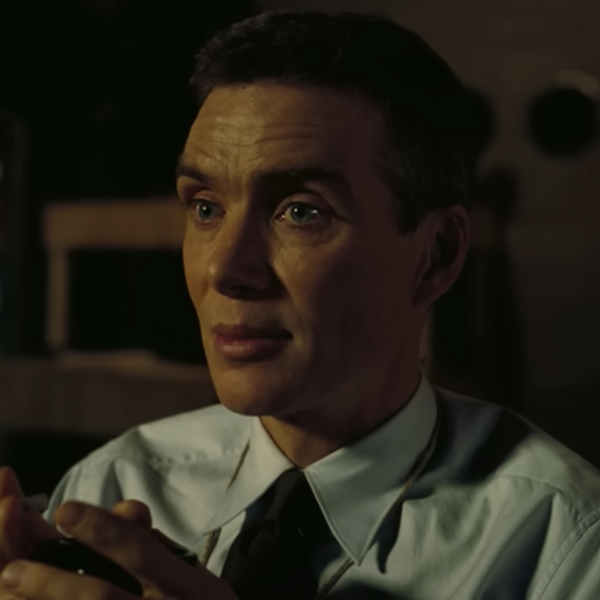The 2024 Cannes Film Festival may be lighter on glitz and glamour than in years past, but that means arthouse and international fare from emerging and established filmmakers will get a chance to shine. Still, at least two American auteurs, Francis Ford Coppola (“Megalopolis”) and Paul Schrader (“Oh, Canada”), have films in the main competition for the first time in decades. David Cronenberg (“The Shrouds”) and Yorgos Lanthimos (“Kinds of Kindness”) are also back at the festival, with both making personal stories in their own way: Cronenberg, here, reckons with grief over the death of his wife seven years ago, while Lanthimos appears to retreat back into “Dogtooth” territory in a film that’s almost a rebuke of the global success he’s acquired with “Poor Things” and “The Favourite.”
Sean Baker, Andrea Arnold, Ali Abbasi, Jia Zhangke, Karim Aïnouz, and Paolo Sorrentino are also back at Cannes this year with new films in the competition. Mohammad Rasoulof joins their ranks with “The Seed of the Sacred Fig,” but whether the Iranian director, who recently fled his home country after a prison sentencing, can attend the festival remains an open question. Then there’s George Miller, Kevin Costner, Leos Carax, and more screening new films out of the competition. There’s plenty to seek out across Un Certain Regard, Critics’ Week, and Directors’ Fortnight — often from first-time filmmakers.
Below, IndieWire rounds up the 2024 Cannes titles we’re most anticipating.
Samantha Bergeson, Christian Blauvelt, Wilson Chapman, Jim Hemphill, Marcus Jones, Anne Thompson, and Christian Zilko also contributed to this list.
“All We Imagine as Light” (Competition)
Three years after winning Cannes’ Golden Eye for best documentary for her “A Night of Knowing Nothing,” Payal Kapadia returns to the Croisette with her narrative debut. This time around, she’ll be competing with a slew of big names in the Competition section — Coppola, Cronenberg, Lanthimos, and Arnold, to name just a few — with what sounds like a tender, imaginative new feature.
“All We Imagine as Light” follows a pair of nurses with their own complicated romantic problems — one of them finds her life upended with the arrival of a gift from her estranged husband, the other is caught up in trying to find a quiet spot to canoodle with her boyfriend — that turn into something quite different when they embark on a road trip that leads them to a “mystical forest.” Little else is known about the film, which Kapadia also wrote and which stars Kani Kusruti, Divya Prabha, and Chhaya Kadam. Still, many eyes will be on it, not just because of Kapadia’s rising star, but because it marks the first time in thirty years that an Indian film has played as part of the competition slate. —KE

“Anora” (Competition)
After over a decade making films set in the margins of sunnier cities like Orlando or Los Angeles, filmmaker Sean Baker returns to his Tri-State area roots with a film about a Brooklyn sex worker who thinks she has found her fairy tale ending marrying the son of a Russian oligarch, but then faces pressure from the man’s parents, who fly into New York to force the couple into an annulment.
Ever the eye for exciting young talent, like “The Florida Project” actress Brooklynn Prince or “Red Rocket” actress Suzanna Son, the director’s latest Cannes competition entry is a star vehicle for Mikey Madison, best known for her fiery roles in “Once Upon a Time in Hollywood” and the fifth “Scream” film. —MJ
“The Apprentice” (Competition)
“Border” director Ali Abbasi is no stranger to touching the third rail (his serial killer drama “Holy Spider” was a confrontationally damning portrait of Iranian society writ large), but releasing a competition-worthy drama about Donald Trump during an election year probably takes the cake.
Set during the nascent years of Trump’s corrupt business career, “The Apprentice” will focus on the future president’s formative relationship with Roy Cohn (played by Jeremy Strong, whose preparation for the role could surely have been a film unto itself) as one of the worst Americans of the 20th century prepares his young protege to become one of the worst Americans of the 21st. Sebastian Stan’s performance as late ’70s Trump is poised to continue a banner year for the “A Different Man” star, while Maria Bakalova’s take on Ivana will presumably be a bit less devastating to Trump’s brand than her work in “Borat 2.” —DE
“The Balconettes” (Midnight)
It’s the “Portrait of a Lady on Fire” reunion we’ve been waiting for: Noémie Merlant and Céline Sciamma wrote a movie together. Not just a movie, but a midnight movie described as a horror comedy, about three young women (Merlant, Souheila Yacoub, and Sandra Codreanu) trapped in their apartment during a heat wave. To pass the time, they spy on their mysterious neighbor (Lucas Bravo) from the apartment balcony, as the conflicts between the three slowly boil over into a bloodbath.
Merlant, always an excellent performer in films like “Portrait of a Lady on Fire” and “Tár,” recently branched out into directing with the 2021 romantic drama “Mi lubita Mon Amor,” which premiered at a Cannes Special Screening but never received a U.S. release. Fingers crossed that “The Balconettes,” which marks her sophomore feature, will eventually make the trip across the pond. —WC

“Bird” (Competition)
In what promises to be dream casting, “Bird” stars Franz Rogowski as the lead whose aviary name doesn’t give much away. Alongside Bird (Rogowski) sits Bug (Barry Keoghan), and the first look at the feature at least gives us more details on Bug: He’s shirtless, tattooed, looking frustrated, and riding an electronic bike with a child behind him on a crowded street. And if that is too vague, at least it’s something to base the aesthetics of the feature on.
Plot details remain under wraps even leading into its Cannes premiere. All we know is that Keoghan allegedly exited Ridley Scott’s “Gladiator 2” to star in Arnold’s indie, which points to just how highly anticipated this release is. Just as a reminder, “Bird” is director Arnold’s return to narrative filmmaking after her controversial 2016 feature “American Honey,” another Cannes premiere. At least Arnold has flown back to the Cannes coop on the Croisette to debut the elusive “Bird.” —SB
“Caught by the Tides” (Competition)
The husband and wife team of director Jia Zhangke and actress Zhao Tao have been one of the most reliable creative partnerships from the past two decades of Chinese cinema. Zhao has starred in many of Jia’s biggest films including “Still Life,” “Platform,” and “Ash Is the Purest White.” Their latest collaboration, “Caught by the Tides,” sees them returning to Cannes with an early 2000s-set love story that stars Zhao as a woman who travels through China in search of a lost lover who disappeared on her after a brief affair.
The film, which marks Jia’s first scripted project in six years, is also notable for its experiments with artificial intelligence. The director used a variety of technologies, including both 16mm film and digital cameras, to tell a love story that spans two decades. He has been open about his willingness to experiment with AI for the project, explaining that he sees it as a natural new development in filmmaking. “I am happy to embrace all technologies: artists should make attempts,” he said in a recent interview with Variety. “We can embrace or reject it — but we must get to know this technology first.” —CZ
“C’est Pas Moi” (Cannes Premiere)
The recent films of Leos Carax have produced some of the most singular cinematic imagery of the 21st century, from the monkeys, sewer people, and talking limousines of “Holy Motors” to the marionette baby operatics of “Annette.” But while it’s tempting to define his films by their visual insanity at first glance, the maximalist imagery is often a vehicle for the auteur’s complicated questions about the role that art and cinema still play in our society.
His latest project, “C’est Pas Moi,” appears to be his most direct attempt yet at engaging with his own artistic legacy. The 40-minute short sees Carax playing himself as he interacts with some of his most recognizable characters from past films as part of a fictional exhibit at Paris’ Centre Pompidou. While the project might be intimidating to those unfamiliar with Carax’s work, it will be must-see cinema for his devotees. —CZ

“Christmas Eve in Miller’s Point” (Directors’ Fortnight)
After making a name for himself with a handful of hypnotically surreal — and defiantly uncommercial — pieces of outsider art, “Ham on Rye” director filmmaker Tyler Taormina is set to broaden his audience without sacrificing his singular approach. Sure to subvert the average holiday movie as much as “Ham on Rye” subverted typical coming-of-age fare, “Christmas Eve in Miller’s Point” tells the story of a yuletide family gathering, the tensions that builds around the dinner table, and the teenagers who choose to escape it by slipping away into the suburbs for a night on the town.
Whereas Taormina’s earlier films were largely populated with non-professional actors, his Directors’ Fortnight debut is packed with indie royalty, including Gregg Turkington, “Eighth Grade” star Elsie Fisher, and Michael Cera as a local cop. Fingers crossed that Santa is about to deliver an off-kilter holiday classic for the kind of people who couldn’t possibly stomach another viewing of “Love, Actually.” —DE
“Furiosa” (Out of Competition)
One of the world’s greatest living action directors returns to the franchise that made his name with “Furiosa,” the latest in the spectacularly ambitious and surprisingly durable “Mad Max” series. Miller has taken quantum leaps with each “Max” film since the 1979 original, each time dramatically expanding and deepening the mythology while also raising the bar for audacious, awe-inspiring set pieces.
Given that 2015’s “Mad Max: Fury Road” was widely considered to be a masterpiece, expectations are high for this prequel, which takes the backstory only hinted at in “Fury Road” and explores it in detail to tell the origin story of the character played by Charlize Theron in the earlier film, and by Anya Taylor-Joy here. Given Miller’s persistent refusal to rest on his laurels and his reliably visionary approach to action, it’s fair to assume “Furiosa” will be a highlight of the festival. —JH
“Horizon (An American Saga)” (Out of Competition)
Thirty-four years ago, Kevin Costner directed a passion project called “Dances with Wolves” in the face of industry-wide skepticism and ended up with a box office hit that was also the first Western to win Best Picture since 1931. Now Costner is back with a new oater that sounds so ambitious it threatens to make the sweeping grandeur of “Dances with Wolves” look like “My Dinner with Andre.”
A projected four-part epic that follows an ensemble of white settlers and the Indigenous people with whom they clash across several decades, it’s a big gamble both artistically and economically, as Costner reportedly self-financed a hefty portion of the $100 million budget. At Cannes, he’ll be premiering the first movie to an international audience eager to see if the auteur behind “Wolves” and “Open Range” can top himself and make another classic entry in his favorite genre. —JH

“Kinds of Kindness” (Competition)
Yorgos Lanthimos’ follow-up to Oscar-winner “Poor Things” ($100-million worldwide), the $15-million dark comedy “Kinds of Kindness” (June 21, Searchlight), marks a return to the off-kilter worlds of writer Efthimis Filippou’s “Dogtooth,” “The Lobster,” and “The Killing of a Sacred Deer,” where people living in an alternate universe follow different behavior rules and sexual and moral codes.
Two stories in the anthology Competition title cover the danger of cults and their mindless followers. Lanthimos uses the same actors throughout: two-time Oscar-winner Emma Stone, rejoining co-stars Willem Dafoe and Margaret Qualley, and Lanthimos rookie Jesse Plemons, who leads the first two episodes; Stone carries the third. Lanthimos sometimes plays Venice, sometimes Cannes, which this year fit his schedule, as he starts a new movie this summer, a remake of a South Korean thriller set to star Stone. —AT
“The Kingdom” (Un Certain Regard)
Julien Colonna’s “The Kingdom” is a coming-of-age thriller set in Corsica in 1995, following Lesia (Ghjuvanna Benedetti) in her first summer as a teenager. After she’s unexpectedly reunited with her criminal father in a remote villa, she finds herself on the lam while also reconnecting with him in spite of violent circumstances as his underworld is exposed.
Benedetti is a remarkable presence in this dark drama that blends crime genre elements with an intimate story of a young woman coming into her own. Colonna sets the film in Corsica, in that particular year, due to the political crossroads on the island at that time, as nationalist clashed with the criminal clans doing business there. Against this backdrop, we see Lesia trying to love her father despite the dangerous path he’s on and unwilling to leave. —RL
“Lula” (Special Screenings)
Oliver Stone is back with another political documentary, this time about Brazil’s current president Luiz Inácio Lula da Silva, who also served as president from 2003 to 2011 before later being jailed on what some think are corruption charges trumped up by the country’s right-wing forces. Lula, as everyone calls him, has found a way to be a consensus figure in Brazil, while injecting elements of Leftist ideology into his administration.
That’s meant he doesn’t automatically take the pro-Ukraine stance dominant in the U.S., and has spoken out against both Putin and Zelensky as leaders he believes are invested in keeping the war going. This has led to accusations of Lula parroting Russian talking points. Not surprising then that Stone, who shares those views and has bent over backward to not only present a more glowing view of Putin in his four-hour “The Putin Tapes,” and EP’d and served as interviewer for the documentary “Ukraine on Fire,” which alleges Neo-Nazis orchestrated Ukraine’s 2014 revolution, would want to be involved with this one. Stone directed “Lula” himself and is premiering it in the Special Screenings section. —CB
“Marcello Mio” (Competition)
Among several Cannes 2024 entries set in a show business milieu (“Oh, Canada,” “Second Act,” “It Doesn’t Matter”), Christophe Honoré’s latest Competition entry stars Chiara Mastroianni (“A Christmas Tale”), daughter of the late great Italian movie star Marcello Mastroianni and French icon Catherine Deneuve, who also stars in this hybrid fiction as Chiara’s mother. She is trying to deal with her actress daughter’s decision one summer to impersonate her father. She goes all in, wearing his clothes and adopting his voice, and is so convincing that people around her start to call her “Marcello.” —AT
“Megalopolis” (Competition)
Finally, the world will be hold the passion project Francis Ford Coppola has been developing for decades. We all know the lore by now: That the “Godfather” and “Apocalypse Now” director has been planning on making this film since the idea came to him in 1977, and that one serious attempt to mount it in the early 2000s failed when 9/11 happened and made its themes a little too close to reality. An idealistic architect (Adam Driver) imagines rebuilding a massive city as a utopia after a calamity renders much of it destroyed. He’s thwarted at every turn by the city’s corrupt mayor (Giancarlo Esposito), with the mayor’s daughter (Natalie Emmanuel) pursuing her own separate agenda.
Coppola says he rewrote the script 300 times. Thankfully, he didn’t rethink naming Aubrey Plaza’s character Wow Platinum. Yes, that’s really her name! Without distribution as Cannes begins, “Megalopolis” feels destined to be a bellwether for if uncompromising auteurist visions built around an original (and expensive: Coppola is believed to have sunk $100 million of his own money in the project) concept have a future with major distributors. —CB
“Miséricorde” (Cannes Premiere)
“Stranger by the Lake” director Alain Guiraudie returns to the land of transgressive queer romance — a place he never really left anyway — for this darkly comic story of a man returning to his hometown. Jérémie’s late boss has died, sending him back to Saint-Martial to comfort the boss’ widow, and rub up against (in more ways than one) former flames and friends. There’s a disappearance, a nosy neighbor, a murder, and an abbot with an agenda of his own. Any Guiraudie film is always worthy of attention-grabbing, yet this one may find the French filmmaker at his most lovely and gentle. —RL
“Motel Destino” (Competition)
Brazilian director Karim Aïnouz follows up his English-language debut “Firebrand” with a more intimate return not only to form but also his home country. Aïnouz’s upcoming erotic thriller “Motel Destino” centers on a roadside hotel that is used predominantly by sex workers. A gang member looks for refuge from both cops and his former cohorts, while offering a bit of emotional solace for the hotel’s co-owner. Of course, their relationship extends beyond just practical sleeping arrangements, and Aïnouz’s feature seems chock full of sex, drugs, and violence. Filmed entirely in Aïnouz’s homeland of Ceará, “Motel Destino” is Aïnouz’s sixth Cannes premiere and most personal feature yet. —SB

“Oh, Canada” (Competition)
After Paul Schrader’s informal trilogy of haunted men films concluded with the intriguing but never wholly successful “Master Gardener,” the writer/director returns with a new story about an isolated man in crisis. Based on the novel “Foregone” by Russell Banks, “Oh, Canada” tells the story of Canadian-American leftist writer Leonard Fife and his journey to Canada to escape the Vietnam war draft. Jacob Elordi, coming off a big 2023 with plum roles in “Priscilla” and “Saltburn,” plays the young Leonard, with a great supporting cast that includes Michael Imperioli, Kristine Froseth, and Uma Thurman. But most intriguing is Richard Gere, playing the elder Fife in the frame story, reuniting with Schrader for the first time since the iconic 1980 escort drama “America Gigolo.” —WC
“Parthenope” (Competition)
Little is known about Paolo Sorrentino’s “Parthenope,” at least not beyond the fact that its title alludes to one of the Sirens in Greek mythology, that A24 snapped it up for a stateside release later this year, and that the Competition entry will continue the “Great Beauty” director’s tradition of melancholy but unapologetically ravishing films shot in the most beautiful locations that Italy has to offer. Also, Gary Oldman pops up in this one, playing — you guessed it — American novelist John Cheever. Sure.
The title character is said to be a woman born in Naples circa 1950, and the film will follow her as she searches for love and happiness amid an all-you-can-eat buffet of big characters and beautiful scenery. “The Hand of God” found Sorrentino refocused and more spellbinding than ever, so we have our fingers crossed that his latest will completely spirit us away. —DE
“The Seed of the Sacred Fig” (Competition)
Cannes competition filmmaker Mohammad Rasoulof will not be at the festival this year after being sentenced to eight years in prison under the Iranian theocracy simply for being a filmmaker. The “There Is No Evil” director’s latest follows a judge for the Revolutionary Court in Tehran dealing with the fallout of the protests dominating news out of Iran in recent years. When the judge’s gun disappears, he falls prey to his own paranoia.
The 51-year-old director continues to make movies that challenge his national establishment. Throughout his career, Rasoulof has been served at least three prison sentences under the guise of violating Iranian censorship law and for criticizing governmental response to protest. Expect “The Seed of the Sacred Fig,” starring vocal Mahsa Amini advocate Soheila Golestani, to be another rallying cry of the soul. —RL
“The Shrouds” (Competition)
It feels like only yesterday that David Cronenberg arrived on the Croisette with his first movie in eight years, the dark, romantic, and fleshy “Crimes of the Future.” Luckily, the body horror master isn’t making us wait another eight years for his next nightmare. Cronenberg’s latest, originally intended to be a Netflix series, will seemingly rein in the body horror for a more psychological tale of grief and loss. Vincent Cassel stars as businessman Kash who, after the death of his beloved wife, invents a controversial new technology that allows the living to monitor the dead in their shrouds.
When his wife’s body is desecrated, Kash sets out to get revenge on the culprits. Expect a semi-autobiographical element to the film: Cronenberg’s real-life wife, editor Carolyn Cronenberg, died in 2017, and both the director and his cast (which also includes Diane Kruger and Guy Pearce) have described “The Shrouds” and his “most personal” project. —WC
“The Substance” (Competition)
Coralie Fargeat’s feature debut, the blood-soaked revenge thriller fittingly titled “Revenge,” is hard to shake. And when the film premiered at the 2017 Toronto International Film Festival in its genre-focused Midnight Madness section, plenty of people felt that, seemingly instantly, as the film’s first screening nearly descended into, well, madness. As we reported at the time, at least one audience member “fell ill” during the feature, stoking rumors that the film was so intense that people literally couldn’t stomach it. While that made for a cool, quick story, it did also highlight something else well worth talking about, even years later: Fargeat is the real deal, and her sophomore feature sounds like it’s well worth the wait.
Fargeat will make her Cannes debut with “The Substance,” which hits the Croisette with the full heft of a competition slot, a major achievement for a still-blossoming filmmaker. Fargeat’s second film stars Demi Moore, Margaret Qualley, and Dennis Quaid, in a body swap chiller that, like “Revenge,” appears to be quite heavy on the blood. Its official synopsis hints at plenty of horrors to come, starting with the titular Substance itself, billed as a “new product” that “can generate another you: younger, more beautiful, more perfect.” The twist? “You just have to share time — one week for one, one week for the other. A perfect balance of seven days each…” Sure, that’ll work out. And knowing Fargeat, she’ll take that intriguing concept and pull it to ghastly, wicked new ends. —KE
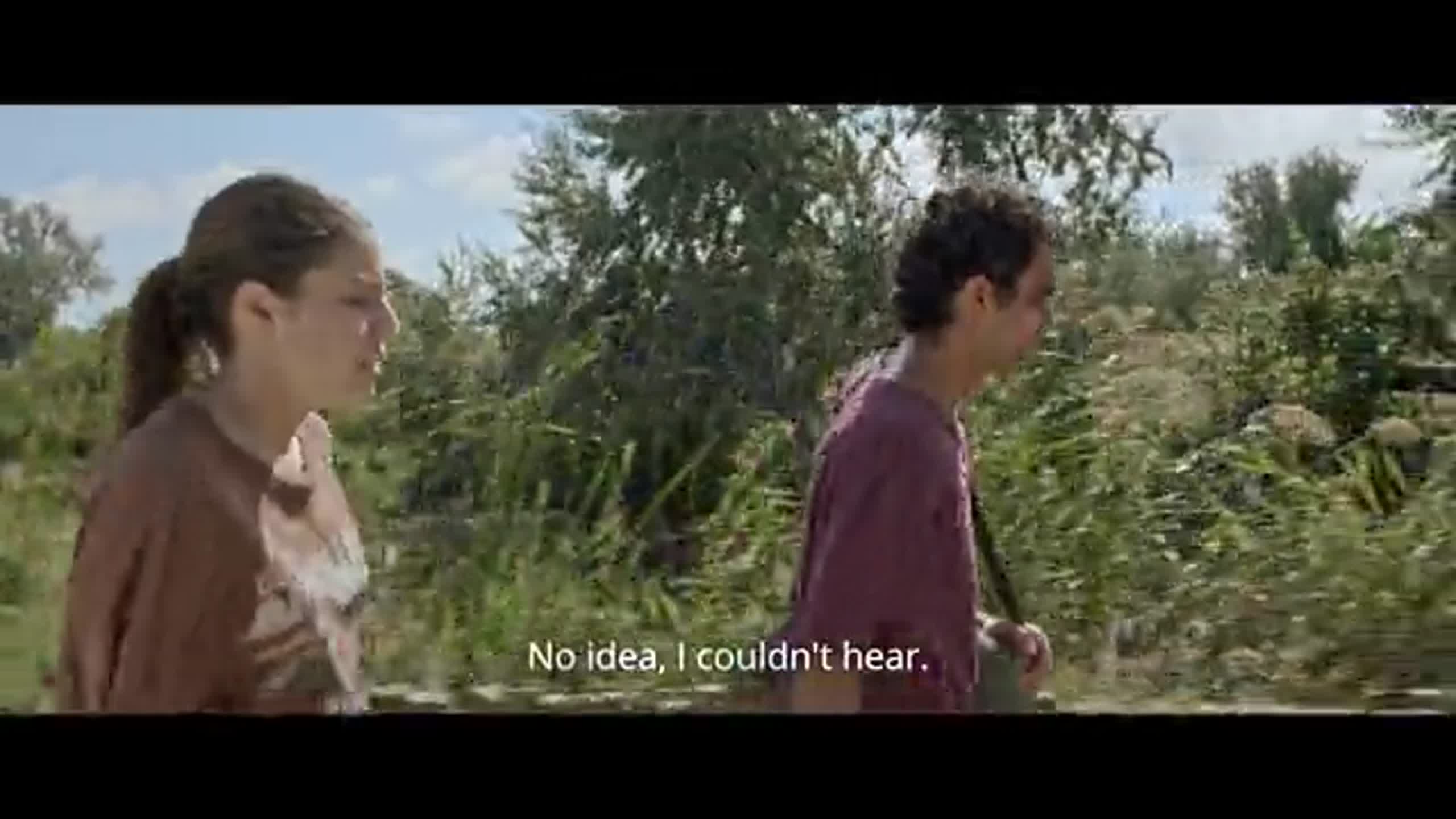
“Three Kilometers to the End of the World” (Competition)
Romanian director Emanuel Pârvu’s “Three Kilometers to the End of the World,” a late addition to the main competition this year, blends family drama and crime thriller in telling the story of gay teen Adi. He suffers a brutal homophobic attack in his remote village in the Danube Delta, bringing his identity to light within the community and alienating his parents. Pârvu is a trained actor who’s worked with fellow Romanian and Palme d’Or winner Cristian Mungiu, and now makes his directorial debut. The film stars Ciprian Chiujdea, Bogdan Dumitrache, and Laura Vasiliu, locating the sinister undertones of a seemingly bucolic world. —RL
“To a Land Unknown” (Directors’ Fortnight)
The only Palestinian film to play Cannes this year, Mahdi Fleifel’s “To a Land Unknown” follows Chatila (Mahmood Bakri) and Reda (Aram Sabbah), cousins and refugees stranded in Athens and trying to reach Germany. To escape Greece, they hatch a plan to pose as smugglers taking hostages, with dire consequences for their friendship. “It’s especially moving to me, in these incredible times, to present a Palestinian film at Cannes. As Palestinians, we challenge media stereotypes, but more importantly, we defy invisibility, a struggle we’ve faced since the beginning. Our stories are needed now more than ever,” Fleifel, born in Dubai from Palestinian parents but raised in Denmark, said announcing the movie. —RL
“Universal Language” (Directors’ Fortnight)
Canadian surrealist Matthew Rankin (“The Twentieth Century”) makes his Cannes debut with this “comedy of disorientation” (the filmmaker’s own words) set in Winnipeg and revolving around multiple stories. There’s gradeschoolers Negin and Nazgol, who find a cache of money frozen in the ice; tour guide Massoud, taking increasingly flummoxed guests through the monuments of the city; and Rankin himself as a government officer who, quitting his job, decides to reconnect with his mother. The German Expressionist-inspired visual style of “The Twentieth Century,” his feature directorial debut, showcased Rankin as a uniquely visionary director unafraid of taking audiences to bizarre corners. —RL

“Wild Diamond” (Competition)
There’s no doubt that the Cannes imprimatur still goes a very long way in the film world, so when we see that a filmmaker’s second film (as with “The Substance”) or their first film in a new medium (as with “All We Imagine as Light”) have made the competition cut, we take notice. When a filmmaker’s feature debut lands there? We lean way, way in. Such is the case with Agathe Riedinger’s “Wild Diamond,” which builds off the filmmaker’s short “Waiting for Jupiter,” as both films follow women named Liane who attempt to launch their “real lives” by, uh, starring on a reality TV program.
“Wild Diamond” stars first-time actress Malou Khebizi in the lead role, a bored small-town French girl who decides to seek fame and fortune by joining the show “Miracle Island.” Riedginer’s short is funny and frank, just a little bit off-kilter, and filled with insights about what it means to come of age in the reality TV bubble. We’re expecting “Wild Diamond” to do that and more. —KE
